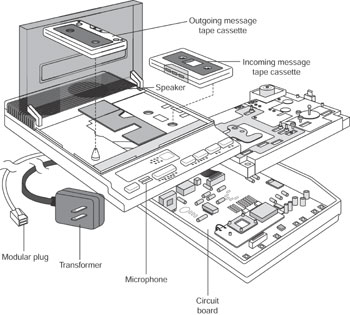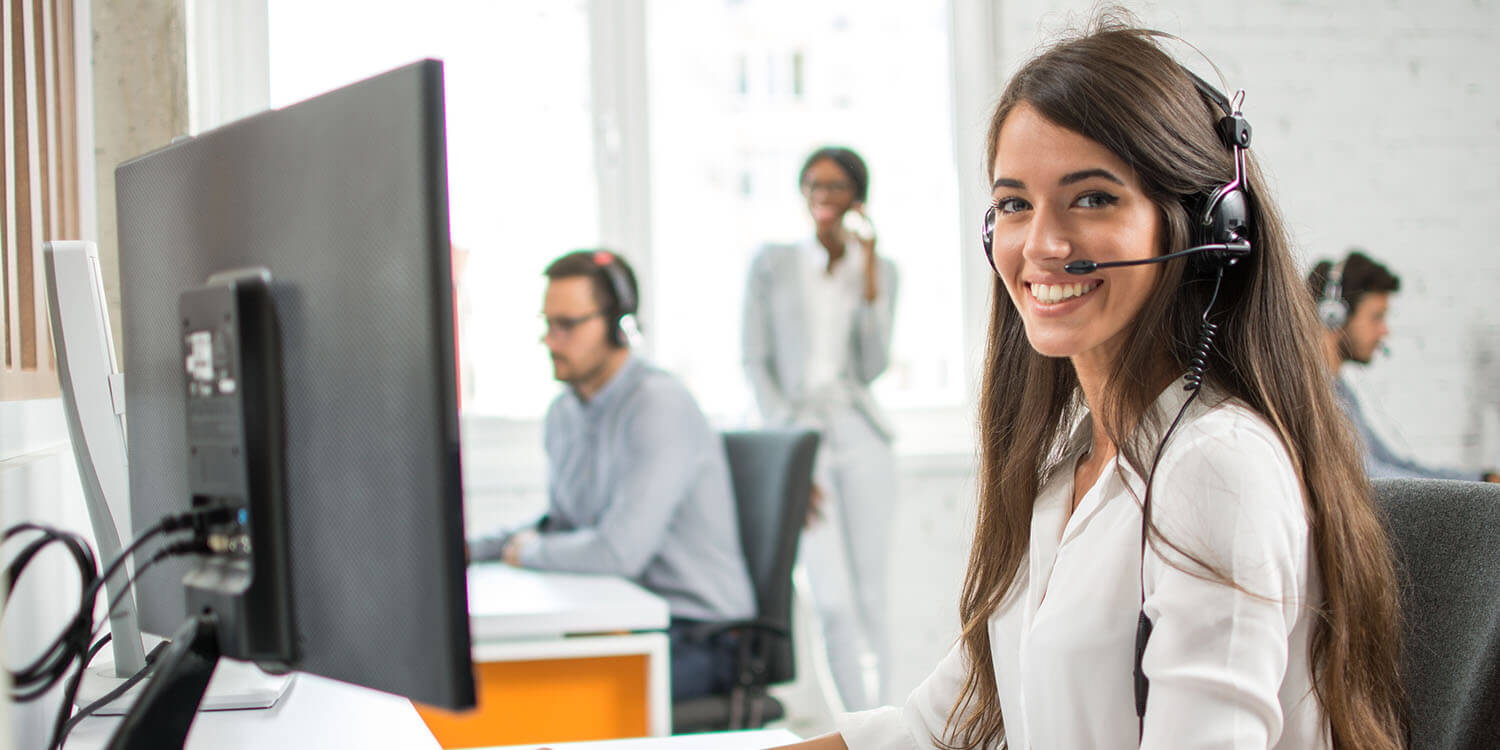All Categories
Featured
Table of Contents
- – Who Is The Best What Is An Answering Service? S...
- – What Is The Best Benefits Of Answering Service...
- – What Is The Best The Best Answering Service Fo...
- – What Is The Best Phone Answering Services - R...
- – What Do What Is An Answering Service? Service...
- – What Is A Good Price For A 5 Mistakes To Avo...
Who Is The Best What Is An Answering Service? Service
This gadget and its successors were created by Sava Jacobson, an electrical engineer with a private consulting company. While early voice mail used magnetic tape technology, a lot of contemporary equipment uses strong state memory storage; some gadgets use a combination of both, with a solid-state circuit for the outgoing message and a cassette for the inbound messages.
"toll conserving" listed below) (telephone answering service). This works if the owner is screening calls and does not want to speak with all callers. In any case after going, the calling party ought to be informed about the call having actually been responded to (most of the times this begins the charging), either by some remark of the operator, or by some welcoming message of the TAD, or dealt with to non-human callers (e.
This holds specifically for the Little bits with digitally stored greeting messages or for earlier machines (before the increase of microcassettes) with a special endless loop tape, separate from a second cassette, committed to recording. There have actually been answer-only devices without any recording capabilities, where the greeting message had to inform callers of a state of current unattainability, or e (reception services).
What Is The Best Benefits Of Answering Service - Professional Services

about accessibility hours. In tape-recording Littles the welcoming normally contains an invitation to leave a message "after the beep". An answering device that uses a microcassette to record messages On a dual-cassette answerphone, there is an outgoing cassette, which after the specified number of rings plays a pre-recorded message to the caller.

Single-cassette voice mail consist of the outbound message at the start of the tape and incoming messages on the remaining area. They first play the statement, then fast-forward to the next offered area for recording, then tape-record the caller's message. If there are lots of previous messages, fast-forwarding through them can cause a considerable hold-up.
This beep is frequently described in the greeting message, requesting that the caller leave a message "after the beep". Littles with digital storage for the recorded messages do disappoint this hold-up, naturally. A TAD may offer a push-button control center, whereby the answerphone owner can ring the home number and, by going into a code on the remote telephone's keypad, can listen to recorded messages, or delete them, even when far from home.
What Is The Best The Best Answering Service For Clinics In The World Right Now

Thus the machine increases the variety of rings after which it answers the call (generally by 2, resulting in 4 rings), if no unread messages are currently kept, but answers after the set variety of rings (typically two) if there are unread messages. This permits the owner to learn whether there are messages waiting; if there are none, the owner can hang up the phone on the, e.
Some devices likewise permit themselves to be from another location activated, if they have actually been turned off, by calling and letting the phone ring a particular a great deal of times (generally 10-15). Some company abandon calls currently after a smaller number of rings, making remote activation impossible. In the early days of Little bits an unique transmitter for DTMF tones (dual-tone multi-frequency signalling) was regionally needed for push-button control, since the previously employed pulse dialling is not apt to convey suitable signalling along an active connection, and the dual-tone multi-frequency signalling was implemented step-by-step.
Any inbound call is not recognizable with respect to these homes in advance of going "off hook" by the terminal devices. So after going off hook the calls must be changed to proper gadgets and only the voice-type is instantly available to a human, however maybe, nevertheless ought to be routed to a LITTLE (e.
What Is The Best Phone Answering Services - Ruby Receptionist Services On The Market
What if I informed you that you do not need to in fact get your gadget when answering a client call? Somebody else will. So hassle-free, ideal? Answering phone calls does not need somebody to be on the other end of the line. Effective automated phone systems can do the technique just as efficiently as a live representative and in some cases even much better.
An automatic answering service or interactive voice reaction system is a phone system that communicates with callers without a live individual on the line - virtual answering service. When companies use this innovation, clients can get the response to a concern about your company simply by utilizing interactions set up on a pre-programmed call circulation.
Although live operators upgrade the customer support experience, numerous calls do not need human interaction. A basic recorded message or directions on how a customer can obtain a piece of information typically resolves a caller's immediate need - virtual telephone answering service. Automated answering services are an easy and effective way to direct inbound calls to the right individual.
What Do What Is An Answering Service? Services Include?
Notification that when you call a company, either for assistance or item inquiry, the very first thing you will hear is a pre-recorded voice greeting and a series of choices like press 1 for customer support, press 2 for inquiries, and so on. The pre-recorded options branch off to other options depending upon the consumer's choice.
The phone tree system assists direct callers to the right person or department utilizing the keypad on a cellphone. In some instances, callers can utilize their voices. It's worth keeping in mind that auto-attendant alternatives aren't restricted to the ten numbers on a phone's keypad. As soon as the caller has picked their very first alternative, you can develop a multi-level auto-attendant that utilizes sub-menus to direct the caller to the best kind of assistance.
The caller does not need to interact with a person if the auto-attendant phone system can handle their concern. The automated service can path callers to an employee if they reach a "dead end" and require help from a live agent. It is costly to hire an operator or executive assistant.
What Is A Good Price For A 5 Mistakes To Avoid When Hiring A Phone Answering Service?
Automated answering services, on the other hand, are significantly cheaper and provide considerable cost savings at approximately $200-$420/month. Even if you do not have committed staff to handle call routing and management, an automated answering service improves productivity by allowing your group to concentrate on their strengths so they can more efficiently spend their time on the phone.
A sales lead routed to customer service is a lost shot. If a client who has item concerns reaches the incorrect department or gets incomplete responses from well-meaning employees who are less trained to deal with a particular kind of question, it can be a reason for frustration and frustration. An automated answering system can lessen the number of misrouted calls, thereby helping your workers make much better usage of their phone time while maximizing time in their calendar for other tasks.
With Automated Answering Systems, you can create a customized experience for both your staff and your callers. Make a recording of your primary greeting, and simply update it routinely to show what is going on in your organization. You can develop as lots of departments or menu options as you desire.
Table of Contents
- – Who Is The Best What Is An Answering Service? S...
- – What Is The Best Benefits Of Answering Service...
- – What Is The Best The Best Answering Service Fo...
- – What Is The Best Phone Answering Services - R...
- – What Do What Is An Answering Service? Service...
- – What Is A Good Price For A 5 Mistakes To Avo...
Latest Posts
Value Medical Answering Service Near Me
Honest Answering Services For Small Businesses Near Me – SA
Dependable Virtual Receptionist ( Adelaide)
More
Latest Posts
Value Medical Answering Service Near Me
Honest Answering Services For Small Businesses Near Me – SA
Dependable Virtual Receptionist ( Adelaide)